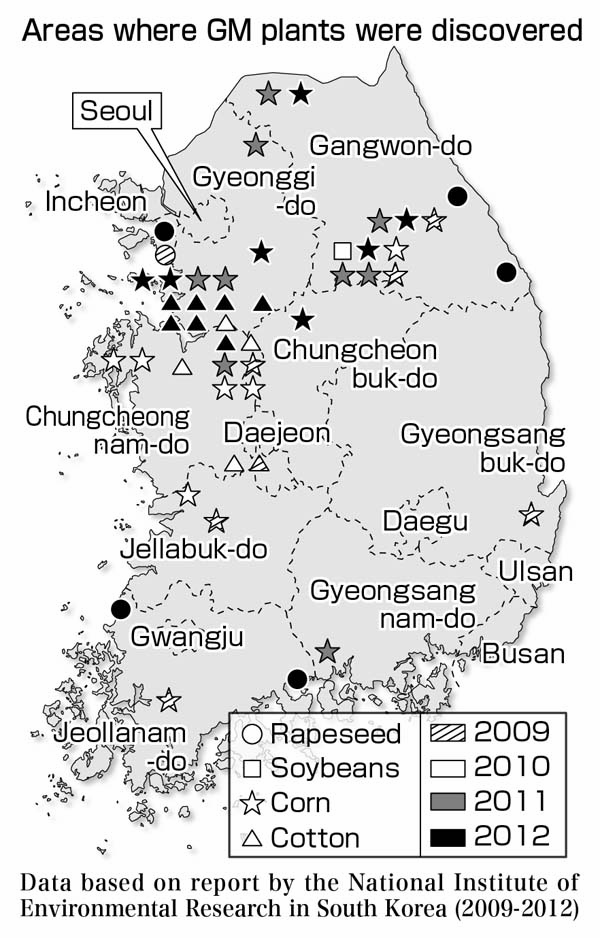Zhezhu Jin
The growth areas of genetically modified plants are spreading throughout South Korea in recent years, apparently due to imported GM products that have accidentally been scattered or fallen off to the ground during transportation, according to a report by South Korea’s National Institute of Environmental Research.
Some of the plants crossbred with other varieties in some areas, the report said, prompting citizens’ groups to call on the government to strengthen monitoring and control of GM crops. The South Korean government also set on revising related regulations.
The institute has been monitoring living modified organisms (LMOs) released into the environment since 2009, and has discovered spontaneous growth of GM plants in 47 areas nationwide in total. In 2009, the institute found the GM plants in eight locations, but the number shot up, with such plants newly found in 19 other locations in 2012.
In terms of specific areas, the largest number of cases of GM plants observed in the natural environment – 20 cases – was found in areas around feed processing factories, followed by 19 cases found along the transportation routes. Recently, GM plants were also found growing around livestock breeding areas.
By plant species, genetically modified corn was most commonly found with 28 cases, followed by 12 cases of cotton, six cases of rapeseed and one case of soybeans.
Youngun Kwong, former head of a group of citizens and farmers opposing GM products, pointed out that the institute’s report is based on a sample survey, which means the result gives only a partial indication of the impact of GM plants on the environment. The actual situation must be worse, Kwong said, stressing that there is urgent need for the government to strengthen management of GM products.
In September 2000, the South Korean government signed the Cartagena Protocol on Biosafety, which regulates international transfer of GM products, and enforced the International Transfer of Living Modified Organisms Law (LMO Law) in January 2008. It plans to revise the law by the end of this year in line with the unintended spreading of GM plants.
An official of South Korea’s Ministry of Trade, Industry and Energy which has jurisdiction over the law said that the existing LMO law lacks regulations concerning scattering of GM products during transportation. The ministry will work on revising the law, taking into consideration other legislations such as traffic controls, the official said.
(Aug. 6, 2013)

